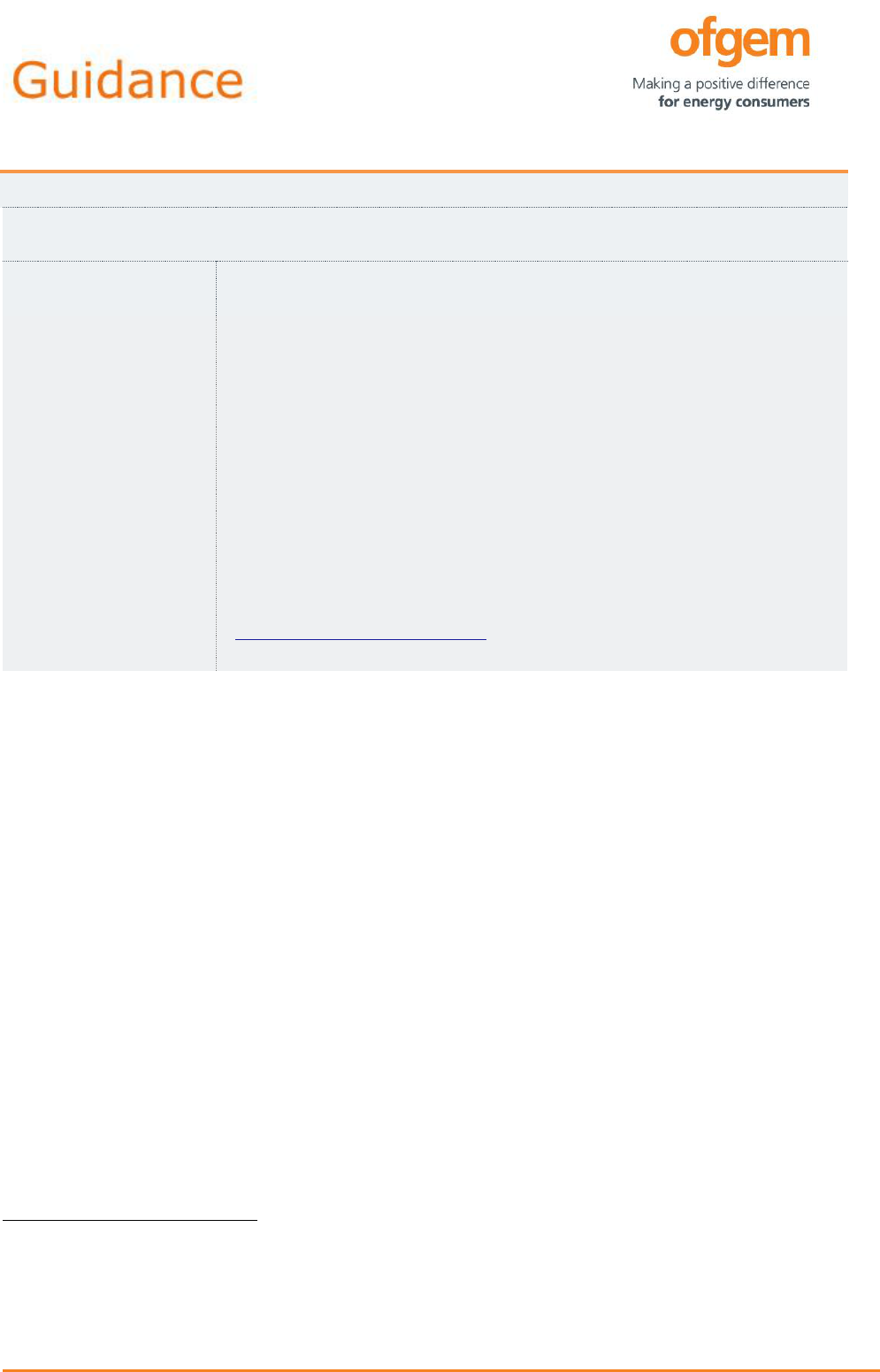
OFG1162
Boiler Upgrade Scheme: Property owner guidance v3
This guidance is for property owners who want to benefit from the Boiler Upgrade
Scheme (BUS). The BUS offers upfront grants to reduce the installation cost of low
carbon heating technologies.
This guidance details which low carbon heating technologies and properties are
eligible. It explains how property owners can find an installer that can make an
application on their behalf, what is required from them, our approach to audit and
compliance and useful contacts.
The regulations governing the Boiler Upgrade Scheme were changed by the Department for
Energy Security and Net Zero and will come in to force on 8 May 2024. This guidance applies
where an application has been properly made on or after 8 May 2024 .
1
For any applications
properly made before 8 May 2024, please refer to version 2.5 of this guidance. See paragraph
4.40 below for a definition of properly made.
1
See Regulation 25 of the Boiler Upgrade Scheme (England and Wales) (Amendment) Regulations 2024
Subject
Details
Publication date:
1 May 2024
Contact
Hiral Shah, Senior Policy Advisor
Jacob Myers, Senior Policy Advisor
Charles Parker, Senior Policy Advisor
Team
Policy and Scheme Development, Delivery & Schemes
Telephone
0330 053 2006
Email

2
Guidance – Boiler Upgrade Scheme: Property owner guidance V3
This guidance applies to applications submitted on or after 8 May 2024.
© Crown copyright 2024
The text of this document may be reproduced (excluding logos) under and in accordance
with the terms of the Open Government Licence.
Without prejudice to the generality of the terms of the Open Government Licence the
material that is reproduced must be acknowledged as Crown copyright and the document
title of this document must be specified in that acknowledgement.
Any enquiries related to the text of this publication should be sent to Ofgem at:
10 South Colonnade, Canary Wharf, London, E14 4PU.
This publication is available at www.ofgem.gov.uk. Any enquiries regarding the use and
re-use of this information resource should be sent to: psi@nationalarchives.gsi.gov.uk

3
Guidance – Boiler Upgrade Scheme: Property owner guidance V3
This guidance applies to applications submitted on or after 8 May 2024.
Contents
Boiler Upgrade Scheme: Property owner guidance v3 ................................... 1
1. Introduction ............................................................................................ 5
BUS Overview ........................................................................................................ 5
Air source heat pumps (ASHPs) ................................................................................. 6
Ground source heat pumps (GSHPs) .......................................................................... 6
Biomass boilers ...................................................................................................... 7
Further information on low carbon heating .................................................................. 7
BUS guidance ......................................................................................................... 7
Related publications and useful links ....................................................................... 9
Contact information ........................................................................................... 10
2. Roles and responsibilities ..................................................................... 11
Section summary ............................................................................................ 11
Role of government ............................................................................................... 11
Role of Ofgem ...................................................................................................... 11
Role of installers ................................................................................................... 12
Role of property owner .......................................................................................... 13
Role of MCS ......................................................................................................... 13
Role of consumer codes ......................................................................................... 14
3. Grants ................................................................................................... 16
Section summary ............................................................................................... 16
Grant level changes – October 2023 ..................................................................... 16
4. Eligibility requirements ......................................................................... 18
Section summary ............................................................................................... 18
Summary of eligibility requirements ......................................................................... 18
Heat pumps explained ........................................................................................... 21
Heat pumps – eligibility criteria ............................................................................... 22
Air source heat pumps ........................................................................................ 22
Ground source heat pumps ................................................................................. 22
Hybrid heat pumps ............................................................................................ 22
Cascade Systems ............................................................................................... 23
Biomass boilers .................................................................................................... 24
Biomass boiler fuel and maintenance .................................................................... 25
Heating system eligibility ....................................................................................... 26
Commissioning Date eligibility ............................................................................. 26

4
Guidance – Boiler Upgrade Scheme: Property owner guidance V3
This guidance applies to applications submitted on or after 8 May 2024.
Further information on low carbon heating ................................................................ 27
Eligible properties ................................................................................................. 28
Requirements for retrofit properties ...................................................................... 28
Existing heating system requirements ................................................................... 28
5. How to benefit from the Boiler Upgrade Scheme – the application
process ....................................................................................................... 32
Section summary ............................................................................................... 32
Choosing an installer and technology ....................................................................... 32
Applying for the BUS voucher ................................................................................. 33
What to give an installer ..................................................................................... 34
Self-build evidence ............................................................................................. 34
Property owner consent ......................................................................................... 35
What giving consent means ................................................................................. 39
Assisted digital .................................................................................................. 39
Consent in error or fraud .................................................................................... 39
Completing the project ....................................................................................... 40
Payment ........................................................................................................... 41
6. Audit & compliance ............................................................................... 42
Section summary ............................................................................................... 42
Why we undertake audits .................................................................................... 42
Audit types ....................................................................................................... 42
After an audit is conducted .................................................................................. 44
Fraud ............................................................................................................... 46
7. Consumer rights and protections ..................................................................... 48
Section summary ............................................................................................... 48
What to do when things go wrong ........................................................................ 48
8. Reporting ..................................................................................................... 50
Section summary ............................................................................................... 50
Reporting frequency ........................................................................................... 50
Section summary ............................................................................................... 52
Queries ............................................................................................................... 52
Right of review ..................................................................................................... 52
Complaints ........................................................................................................... 52
Complaints about policy and policy decisions ......................................................... 52
Complaints about scheme administration .............................................................. 52
Complaints about installers ................................................................................. 53

5
Guidance – Boiler Upgrade Scheme: Property owner guidance V3
This guidance applies to applications submitted on or after 8 May 2024.
1. Introduction
BUS Overview
1.1. Heating homes, businesses and industry is responsible for a third of the UK’s
greenhouse gas emissions. Switching to low carbon heating can help to reduce a building’s
greenhouse gas emissions. The government’s ambition is to phase out the installation of new
natural gas boilers beyond 2035 to ensure that almost all heating systems used in 2050 are
low carbon. Heat pumps will play a major role in the pathway to net zero emissions as they
are a well-established, proven technology which deliver effective heating and offer immediate
and substantial carbon savings compared to fossil fuel heating.
1.2. The Boiler Upgrade Scheme (BUS) aims to incentivise and increase the deployment of
low carbon heating by providing targeted support to the supply chain.
1.3. The BUS is an installer-led scheme which provides upfront capital grants to support
the installation of heat pumps and, in limited circumstances, biomass boilers in domestic and
non-domestic buildings in England and Wales. Grants of £7500 are available for air source
heat pumps (ASHPs) and ground source heat pumps (GSHP), and grants of £5000 are
available for biomass boilers. The voucher application and redemption process is shown in
Figure 1.
1.4. The scheme has a committed budget of £450 million over three years from 2022-
2025, split equally giving an annual budget allocation of £150 million per financial year. In
December 2023, additional budget of £1.5bn was announced for the extended BUS scheme
(2025-2028)
2
.
1.5. In addition, between 1 April 2022 and 31 March 2027, there is a zero rate of VAT
3
on
the installation of energy-saving materials including heat pumps and biomass boilers. This is
another measure intended to incentivise the take up of energy saving materials in line with
the government’s net zero objectives.
2
Proposed amendments to the Boiler Upgrade Scheme Regulations - GOV.UK (www.gov.uk)
3
The Value Added Tax (Installation of Energy-Saving Materials) Order 2022 - GOV.UK (www.gov.uk)
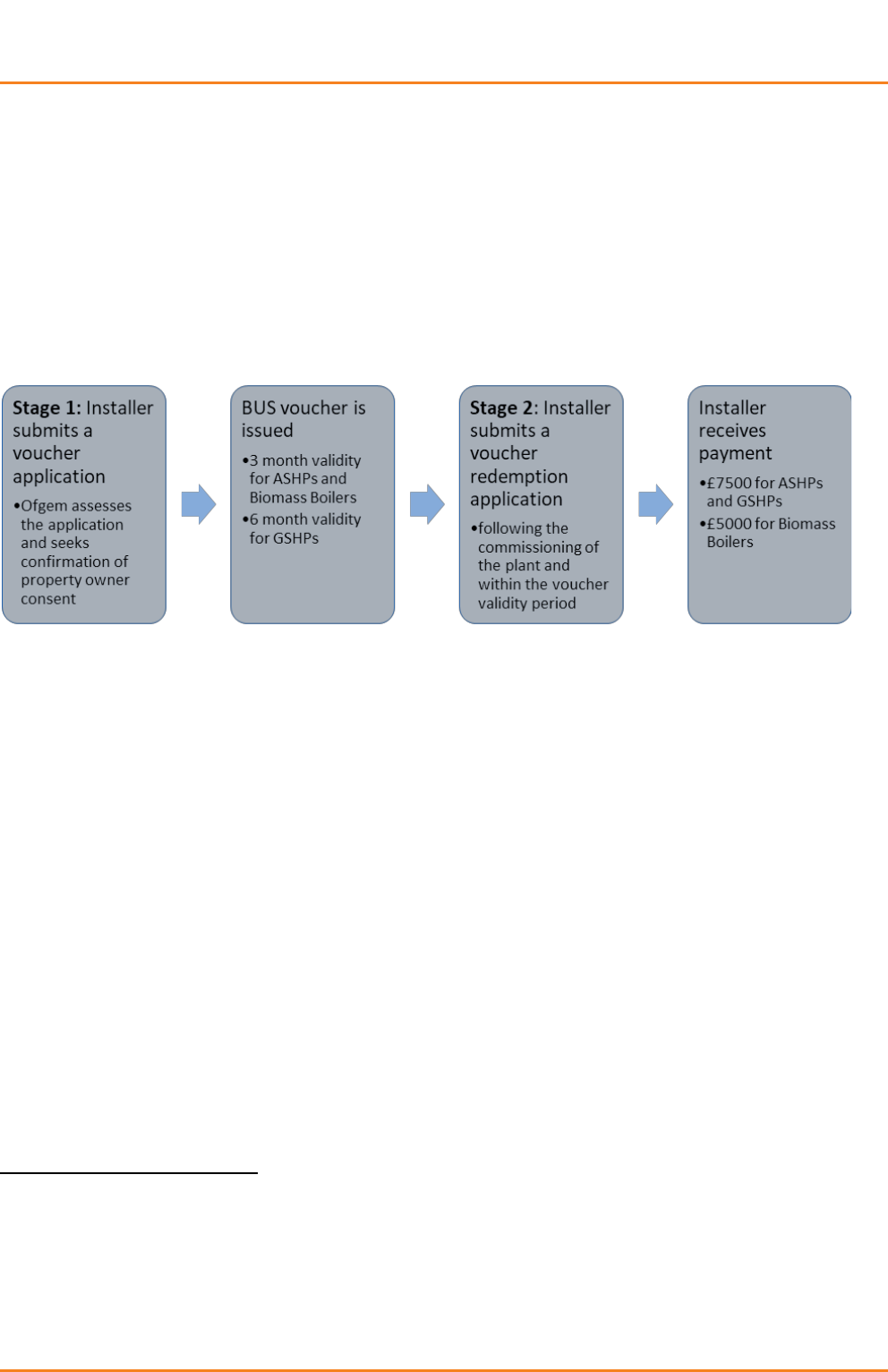
6
Guidance – Boiler Upgrade Scheme: Property owner guidance V3
This guidance applies to applications submitted on or after 8 May 2024.
1.6. BUS is underpinned by the Boiler Upgrade Scheme (England and Wales) Regulations
2022, as amended, referred to as “the BUS regulations”, laid on 22 May 2022 and
amended on 8 May 2024.
4
Ofgem (on behalf of the Gas and Electricity Markets
Authority) is the administrator of the BUS. We administer this scheme in line with
the BUS regulations.
Figure 1 – Application process overview
5
Air source heat pumps (ASHPs)
1.7. ASHP systems must be hydronic (air-to-water) to be eligible under BUS.
6
Air-
to-air systems are not eligible.
Ground source heat pumps (GSHPs)
1.8. GSHPs must generate heat using a thermodynamic cycle by transferring energy
stored in the form of heat from the ground, including water in the ground or
surface water or both, and use that energy to heat a liquid.
1.9. GSHPs use equipment called ground loops to harness heat energy from the ground
or from water in the ground or surface water. In a shared ground loop system,
two or more GSHPs receive the heat from the same loop through a hydraulic
4
This guidance only applies in respect of applications which were properly made after 8 May 2024
5
Assuming eligibility criteria are met, and an application is successful.
6
The BUS regulations, Regulation 9(2)(a)(ii)

7
Guidance – Boiler Upgrade Scheme: Property owner guidance V3
This guidance applies to applications submitted on or after 8 May 2024.
connection. The eligibility requirements for ground loops and shared ground loops
(SGLs) are set out in Table 2 in Chapter 4.
Biomass boilers
1.10. Biomass boilers are also supported under the scheme.
7
They burn solid biomass,
usually wood chips or pellets, to deliver space heating and hot water to a property.
Biomass boilers must deliver heat via a liquid to be eligible under the BUS.
Further information on low carbon heating
1.11. More information and impartial advice on low carbon heating technologies and
whether they might be suitable for a property can be found on the Energy Saving
Trust website.
8
1.12. Another tool property owners can use to judge whether their house might be
suitable for a heat pump can be found on the GOV.UK website.
9
It is important to
note this is a general resource and not specific to the eligibility requirements of the
BUS.
BUS guidance
1.13. This guidance is for property owners who wish to benefit from the BUS. It explains
our administration of the BUS and includes details such as:
• eligibility requirements
• what is required from property owners
• how to apply for a BUS voucher
• who can apply for a BUS voucher
• our audit regime and compliance processes
• scheme reporting
7
The BUS regulations, Regulation 10
8
https://energysavingtrust.org.uk/energy-at-home/heating-your-home/
9
https://www.gov.uk/check-heat-pump

8
Guidance – Boiler Upgrade Scheme: Property owner guidance V3
This guidance applies to applications submitted on or after 8 May 2024.
1.14. This guidance does not anticipate every scenario that may arise. If a scenario
arises that is not addressed in this guidance, we will adopt an approach that is
consistent with the BUS regulations.
1.15. It is the responsibility of each applicant (installers) to understand the
requirements of the BUS regulations and how these apply. This guidance
is not a definitive guide to the BUS regulations, and it does not constitute
legal advice. The installer, with support from the property owner, is
responsible for ensuring that the installation is eligible and the
information on the BUS application they submit is correct. Where there is
any ambiguity or conflict between the guidance and regulations, the
regulations take precedence.
1.16. Where there are future changes to the BUS regulations, we will revise our
administrative arrangements accordingly.
1.17. We previously sought views on our proposed administration of the BUS and
published our resulting decisions here.
10
We are not currently seeking views on our
administrative approach.
1.18. The underlying policy design of the BUS is set by the Department for Energy
Security and Net Zero (DESNZ), formerly known as BEIS.
Personal data
1.19. Ofgem will process all personal data collected in accordance with the assimilated
law version of the General Data Protection Regulation 2016/679 (UK GDPR) and
the Data Protection Act 2018.
1.20. Ofgem uses the personal data collected to perform its statutory functions and may
share this information with other organisations in line with our duties under the UK
10
https://www.ofgem.gov.uk/publications/decision-administration-boiler-upgrade-scheme-bus

9
Guidance – Boiler Upgrade Scheme: Property owner guidance V3
This guidance applies to applications submitted on or after 8 May 2024.
GDPR. The installer will provide you with a privacy notice which will explain the
basis of the installer processing of personal data and Ofgem process.
1.21. For more information on how we process the personal information of installers on
the BUS please refer to our installer information privacy policy.
11
1.22. For more information on how we process the personal information of property
owners on the BUS please refer to our property owner privacy policy.
12
Related publications and useful links
• Boiler Upgrade Scheme Regulations consultation: government response, (DESNZ,
March 2024)
• Notice confirming the grant level for air source heat pumps and ground source heat
pumps will be £7,500Changes to the Boiler Upgrade Scheme, October 2023
• Boiler Upgrade Scheme (BUS) (Ofgem)
• Boiler Upgrade Scheme (BUS) - Guidance and resources | Ofgem
• Boiler Upgrade Scheme: Guidance for Installers (Ofgem, November 2022)
• Boiler Upgrade Scheme Regulations: approved standards (DESNZ, April 2022)
• The Boiler Upgrade Scheme (England and Wales) Regulations 2022 (UK Government,
May 2022).
• BEIS Guidance: Check if you may be eligible for the Boiler Upgrade Scheme (BEIS,
March 2022)
• Future support for low carbon heat - BEIS consultation (BEIS, April 2020)
• Clean Heat Grant: further policy design proposals (BEIS, February 2021)
• Future Support for Low Carbon Heat: Boiler Upgrade Scheme - Government response
to Clean Heat Grant proposals within ‘Future support for low carbon heat’ consultation
(BEIS, October 2021)
• Consultation on Ofgem's Administration of the Boiler Upgrade Scheme (Ofgem,
December 2021)
• Consultation response on Ofgem's Administration of the Boiler Upgrade Scheme
(Ofgem, April 2022)
11
https://www.ofgem.gov.uk/publications/boiler-upgrade-scheme-privacy-notice-installers
12
https://www.ofgem.gov.uk/publications/boiler-upgrade-scheme-privacy-notice-property-owners

10
Guidance – Boiler Upgrade Scheme: Property owner guidance V3
This guidance applies to applications submitted on or after 8 May 2024.
Contact information
1.23. Any questions on the BUS guidance or our administration of the BUS should be
directed to the BUS Enquiries team at [email protected].uk or by phone on
0330 053 2006.

11
Guidance – Boiler Upgrade Scheme: Property owner guidance V3
This guidance applies to applications submitted on or after 8 May 2024.
2. Roles and responsibilities
Role of government
2.1. The Department for Energy Security and Net Zero (DESNZ), formerly known as BEIS
is responsible for the policy and scheme regulations. The Secretary of State also has
a role in how the scheme runs and this is set out in the regulations, including but
not limited to:
• approving and publishing the standards, including consumer codes
13
that
installers and products must adhere to
14
• publishing budget allocations for BUS vouchers on an annual, and potentially
quarterly, basis if applicable
15
• determining, publishing, and reviewing the value of BUS vouchers and, if
required, altering their value
16
• determining, publishing, and reviewing grant categories
Role of Ofgem
2.2. We administer the scheme on behalf of the government. The BUS regulations
describe our powers and functions for the BUS. Those functions include but are not
limited to:
13
The BUS regulations, Regulation 4
14
https://www.gov.uk/government/publications/boiler-upgrade-scheme-regulations-approved-
standards
15
The BUS regulations, Regulation 12
16
The BUS regulations, Regulation 13
Section summary
This chapter describes the roles and responsibilities of BUS stakeholders. This includes the
government, Ofgem, installers, property owners, MCS and consumer codes. It sets out the
requirements that the scheme places on these parties. The roles and responsibilities listed
here are non-exhaustive.

12
Guidance – Boiler Upgrade Scheme: Property owner guidance V3
This guidance applies to applications submitted on or after 8 May 2024.
• publishing procedural guidance for prospective installers and property owners
17
• processing voucher applications and voucher redemption applications
18
• making payments to installers following successful voucher redemption
applications
19
• publishing reports on how the BUS is operating
20
• monitoring and enforcing compliance with the requirements of the regulations
21
Role of installers
2.3. The obligations of installers are set out in the regulations. Installers play a key role
in this scheme. Installers are responsible for:
• providing eligibility information and providing further information on request
22
• being certified by the Microgeneration Certification Scheme (MCS) or an equivalent
scheme
23
• submitting voucher applications and voucher redemption applications on behalf of the
property owner
• confirming that the information provided in relation to applications is accurate
24
• informing us of any incorrect information provided
• retaining a copy of any information relied upon for the submission of voucher
applications and voucher redemption applications for six years
• engaging with audit and compliance processes when requested by us
25
• ensuring that the discount that the BUS grant provides is passed on to the property
owner.
26
17
The BUS regulations, Regulation 29
18
The BUS regulations, Regulations 14, 15 and 16
19
The BUS regulations, Regulation 16
20
The BUS regulations, Regulation 30
21
The BUS regulations, Part 5
22
The BUS regulations, Regulations 14,16 and 17
23
The BUS regulations, Schedule 2, Under Regulation 4 the DESNZ are responsible for determining
whether a scheme is equivalent to MCS. There are currently no schemes determined by DESNZ to be
equivalent to MCS.
24
The BUS regulations, Regulations 14 and 16
25
The BUS regulations, Regulation 17
26
The BUS regulations, Regulation 14

13
Guidance – Boiler Upgrade Scheme: Property owner guidance V3
This guidance applies to applications submitted on or after 8 May 2024.
Role of property owner
2.4. The regulations also set out the responsibilities of property owners. Property
owners need to do the following:
• Confirm some eligibility details to us and ensure that any information or confirmation
they provide to either their installer or Ofgem as part of the application process is
accurate
27
• Confirm their consent for a BUS voucher application to be made on their behalf by
their chosen installer
• Confirm that they have read and understood their Energy Performance Certificate
(EPC) and any recommendations present on the EPC
• Where a property owner is a landlord, confirmed they have informed any tenant(s) of
the impacts of the installation of the eligible system.
• Reply to us so that we can verify their identity when they are confirming their consent
for a BUS voucher application be made on their behalf
28
• Take part in audit and compliance processes when requested to by us
29
2.5. If property owners need to amend any eligibility details provided to Ofgem,
property owners should notify their installer and they will convey that to Ofgem to
make those changes.
Role of MCS
2.6. MCS
30
is a certification scheme for microgeneration installation companies and
products. It defines and maintains standards, providing confidence to consumers
who wish to invest in small-scale technologies that produce electricity and heat from
renewable sources.
27
See paragraph 5.35 on guidance regarding our assisted digital route for property owners that do not
use emails or may not be able to access the online service to provide their consent.
28
The BUS regulations, Regulation 14
29
The BUS regulations, Regulation 14, 16, and 18
30
https://mcscertified.com/

14
Guidance – Boiler Upgrade Scheme: Property owner guidance V3
This guidance applies to applications submitted on or after 8 May 2024.
2.7. Property owners should contact MCS if they have issues with the:
• installation process
• installer
• MCS certificate or product
2.8. MCS works through its certification bodies. When a case is under review, the
relevant certification body may contact the property owner who submitted the
case.
Role of consumer codes
2.9. Consumer codes aim to guarantee a high-quality experience for consumers. MCS
installation companies working with domestic customers must also be a member of
a consumer code approved by the Secretary of State which can be found through
the GOV.UK website
31
. MCS works closely with these consumer codes to help
address complaints.
2.10. The two relevant consumer codes are the Home Insulation and Energy Systems
Contractors Scheme (HIES)
32
and the Renewable Energy Consumer Code (RECC).
33
2.11. To find out which consumer code an installer is signed up to, please check MCS’s
installer search.
34
Alternatively, property owners can check with HIES
35
or RECC
36
directly.
31
https://www.gov.uk/government/publications/boiler-upgrade-scheme-regulations-approved-
standards
32
https://www.hiesscheme.org.uk/
33
https://www.recc.org.uk/
34
https://mcscertified.com/find-an-installer/
35
https://www.hiesscheme.org.uk/homeowners/find-a-hies-member/
36
https://www.recc.org.uk/scheme/members

15
Guidance – Boiler Upgrade Scheme: Property owner guidance V3
This guidance applies to applications submitted on or after 8 May 2024.
2.12. For more information and to contact the codes, please see their contact details
below:
• Home Insulation and Energy Systems Contractors Scheme (HIES):
https://www.hiesscheme.org.uk/, or telephone number: 0344 324 5242
• Renewable Energy Consumer Code (RECC): https://www.recc.org.uk, or telephone
number: 0207 981 0850
2.13. In the event of a dispute with an installer, consumers can access the dispute
resolution service provided by the consumer codes. Code related issues are
addressed directly by the consumer codes. Where there are technical aspects to a
dispute, MCS works closely with the relevant consumer code to fully investigate the
matter. In some cases, a dispute may need to be addressed by both organisations
to ensure that they are fully resolved.
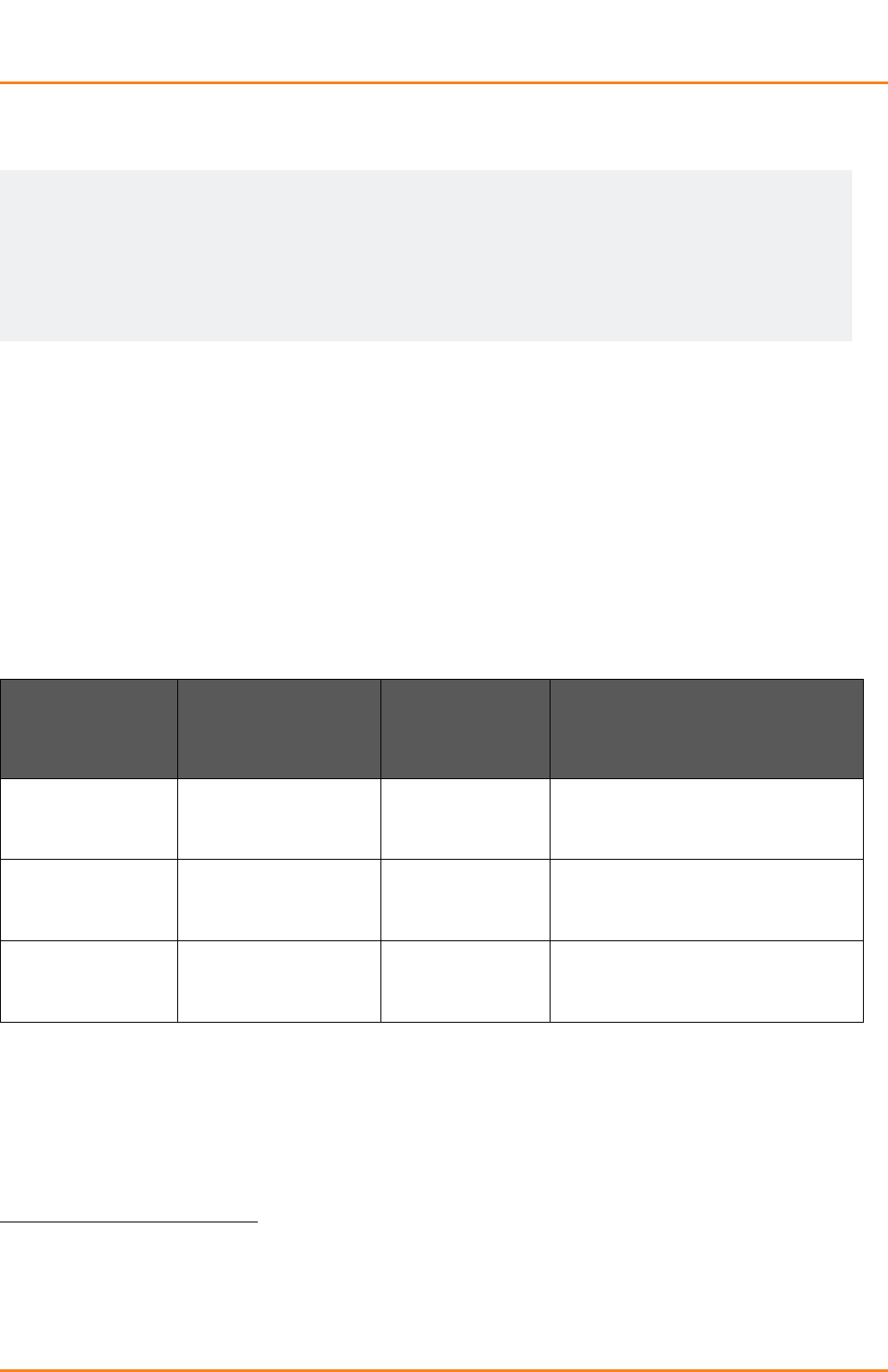
16
Guidance – Boiler Upgrade Scheme: Property owner guidance V3
This guidance applies to applications submitted on or after 8 May 2024.
3. Grants
3.1. The vouchers available for BUS installations have a set grant value and validity period
based on the technology. Table 1 shows the total grant value and validity period for each
eligible technology.
3.2. The value of the grants will not change based on the cost or size of the installation.
Table 1 – Technology specific grant values and validity periods valid from 23 October
2023
Technology
type
Voucher Validity
Period
Grant Value
(23 May - 22
October 2023)
Grant Value (effective
Monday 23 October 2023)
Air source heat
pump
3 months
£5000
£7500
Ground source
heat pump
6 months
£6000
£7500
Biomass boiler
3 Months
£5000
£5000
Grant level changes – October 2023
3.3. On Thursday 21 September 2023, DESNZ issued a change notice in accordance with
the BUS Regulations to increase the BUS grant level for ASHPs and GSHPs
37
. These grant
37
The BUS regulations, Regulation 13(4)
Section summary
This chapter sets out the voucher grant values and associated validity periods for different
technology types.

17
Guidance – Boiler Upgrade Scheme: Property owner guidance V3
This guidance applies to applications submitted on or after 8 May 2024.
changes were active from Monday 23 October 2023 and the grant levels are set out in Table
1.
Grant Categories
3.4. Currently, grant values are split by technology type only: ASHP, GSHP and biomass
boilers.
3.5. The Secretary of State has the power to review and differentiate the current set of
grant categories to provide more targeted support for certain eligible system types and
properties.
3.6. The Secretary of State will publish a notice on the Government website. 28 days later
the new set of grant categories will come into effect. Once the new set of grant categories
comes into force this will have the effect of deactivating the previously published set, as there
can only be one set of grant categories activated with published grant values at any one
time.
38
38
The BUS regulations, Regulation 2B
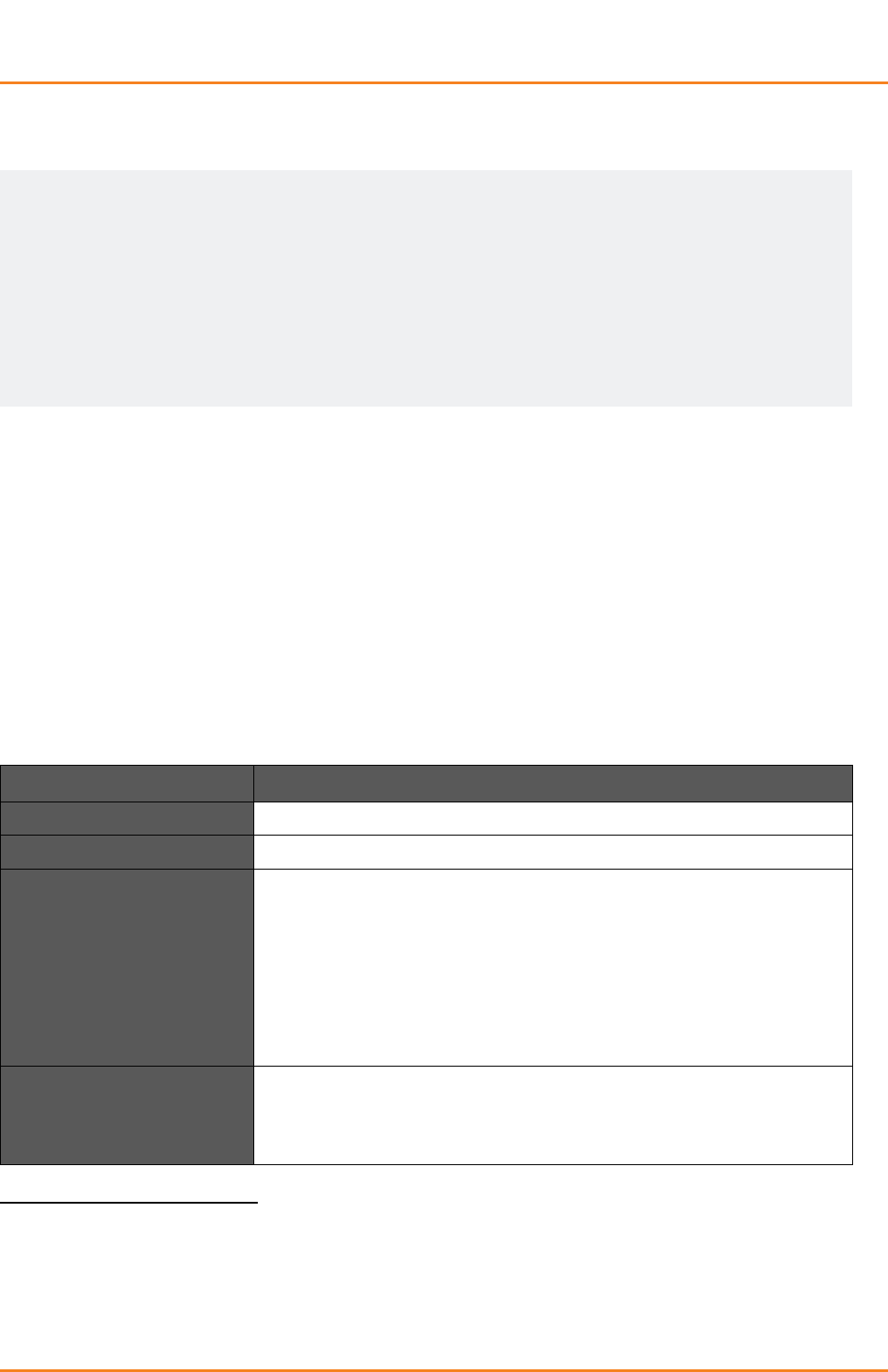
18
Guidance – Boiler Upgrade Scheme: Property owner guidance V3
This guidance applies to applications submitted on or after 8 May 2024.
4. Eligibility requirements
Summary of eligibility requirements
4.1. This section summarises the key eligibility requirements for the BUS. The chapter then
discusses each one in turn in more detail. The installer will be able to help the property owner
understand the requirements and verify whether their property and technology meets them.
4.2. Table 2 summarises the main eligibility requirements and Table 3 summarises
additional technology specific requirements.
Table 2 - Main eligibility requirements for the BUS
Type of Eligibility
Description
Installers
Must be MCS
39
accredited and certified
40
Location
Properties must be located in England or Wales
Type of building
• Domestic and non-domestic buildings are eligible
• Social housing is not eligible
“Eligible self-builds” as defined in paragraph 4.60 are the only
eligible new builds. New builds which form part of an “excluded
property development” and/or which have been owned by a
developer while they were built will not be eligible
Energy Performance
Certificate
• Properties must have a valid EPC (generated in the last
10 years), unless they are an eligible self-build as
defined in paragraph 4.60
39
Or equivalent scheme to the MCS
40
The BUS regulations, Schedule 4
Section summary
This chapter outlines the eligibility requirements for the Boiler Upgrade Scheme. It
describes the criteria that, installers properties and installations must meet in order to be
eligible to receive a BUS voucher and grant. It also sets out how these eligibility
requirements must be evidenced.

19
Guidance – Boiler Upgrade Scheme: Property owner guidance V3
This guidance applies to applications submitted on or after 8 May 2024.
Type of Eligibility
Description
Previous heating
system requirements
• The previous heating system (where applicable) must
have been a fossil fuel heating system or an electric
system that does not include a heat pump
• Certain heat generating components must be replaced.
41
Eligible technologies
• Air source heat pumps
• Ground source heat pumps
• Water source heat pumps
• Ground source heat pumps as part of a shared ground
loop (SGL)
• Biomass boilers
Commissioning date
• The date on which the voucher application is properly
made must not be more than 120 days after the eligible
system has been commissioned
Capacity limit
• 45 kWth
42
total capacity limit
• This limit covers the vast majority of domestic and small
non-domestic properties
• The collective capacity limit for a BUS SGL system is
300KWth. Individual plants connected to the SGL must
not exceed the 45kW limit.
Heat pump or biomass
boiler system
requirements
• An installer will be able to advise the property owner of
which technology is most suitable for their property and
help them to understand the eligibility criteria.
• Must provide heating for the purpose of both space
heating and water heating
• Must be capable of meeting the full space heating and
hot water heating demands of the property
• Must use a liquid to distribute heat
41
There are some exceptions to this requirement and an installer will be able to advise if they are
relevant.
42
kWth means kilowatt thermal. It is a unit of heat supply capacity used to measure the output from an
installation.

20
Guidance – Boiler Upgrade Scheme: Property owner guidance V3
This guidance applies to applications submitted on or after 8 May 2024.
Type of Eligibility
Description
Other funding
• The installation cannot be funded by more than one
source of public funds. BUS funding cannot be used in
addition to other support from public funds or
government schemes, such as the Energy Company
Obligation (ECO) for the same new installation.
• There has not been a previous grant from public funds
for a heat pump or biomass boiler installed at the same
address.
Table 3 - Technology specific requirements
Requirement
Heat pumps
Biomass boiler
Location
Urban and rural properties in
England or Wales
Rural properties only in
England or Wales
Properties
Can be installed in an
eligible self-build
Cannot be installed in an
eligible self-build
Gas grid connection
Property can be on or off the
gas grid
Cannot be installed in
properties on the gas grid,
this includes properties with
a clamped or capped gas
supply

21
Guidance – Boiler Upgrade Scheme: Property owner guidance V3
This guidance applies to applications submitted on or after 8 May 2024.
Heat pumps explained
4.3. Heat pumps use electricity to draw heat from the air, ground, or a nearby water-
source and transfer it into a property to provide space heating and hot water. They are more
efficient than natural gas boilers, producing several units of heat for every unit of electricity
consumed.
4.4. Due to their superior efficiency compared to fossil fuel boilers, running costs for heat
pumps can be comparable to existing heating systems when they are installed to the relevant
standards and in a well-insulated property. This depends on the existing heating system, and
the MCS certified installer
43
should provide the property owner with an estimation of the
system performance before a contract is signed. Replacing a gas or oil boiler with a heat
pump can help reduce exposure to volatile gas and oil prices.
4.5. The current higher cost of electricity relative to gas means that, in some properties,
installing a heat pump may initially lead to higher running costs. However, the government is
committed to rebalancing energy costs to ensure that heat pumps are no more expensive to
operate than a gas boiler and will be comparatively cheaper to run over time.
4.6. It is important that property owners understand that heat pumps perform best in a
well-insulated property. From 8 May 2024, we accept EPCs with insulation recommendations.
However, we expect that installers have a discussion with property owners about the benefits
of energy efficiency measures and potential measures the property owner could take.
4.7. Insulation measures, such as cavity wall and loft insulation, are relatively low-cost
measures that could reduce energy bills and increase heat retention in a property. For
example, without loft insulation, around a quarter of heat is lost through the roof. These
types of insulation help to keep heat inside the home, making it more comfortable and
lowering heating costs.
4.8. More information around energy efficiency measures can be found on the government
website.
44
43
The BUS regulations, Regulation 2(1) and paragraph 1(b)(i) of Schedule 4.
44
Energy Efficient Home - Invest To Save On Your Energy Bills (energy-efficient-
home.campaign.gov.uk)

22
Guidance – Boiler Upgrade Scheme: Property owner guidance V3
This guidance applies to applications submitted on or after 8 May 2024.
Heat pumps – eligibility criteria
4.9. There is a minimum efficiency requirement for heat pumps
45
to ensure that the system
is performing well and that significant carbon emission reductions are achieved. Heat pumps
must have a seasonal coefficient of performance (SCOP) of at least 2.8. An installer will need
to select a system that achieves this.
Air source heat pumps
4.10. ASHP systems must be hydronic (air-to-water) to be eligible under BUS. Air-to-air
systems are not eligible.
Ground source heat pumps
4.11. GSHPs must generate heat using a thermodynamic cycle by transferring energy stored
in the form of heat from the ground, including water in the ground or surface water or both,
and use that energy to heat a liquid.
4.12. GSHPs use equipment called ground loops to harness heat energy from the ground or
from water in the ground or surface water. This is the heat generating component of a GSHP
and must be new (see Table 2 above).
4.13. In a shared ground loop system, two or more GSHPs receive the heat from the same
loop through a hydraulic connection. Shared air loop systems are not eligible on the scheme.
The eligibility requirements for ground loops and shared ground loops (SGLs) are set out in
Table 2 above. The ground loop in relation to the second or subsequent GSHP forming part of
the system does not have to be new.
46
The overall system capacity for any shared ground
loop system must not exceed 300 kwth. The capacity of individual heat pumps connected to a
shared ground loop must not exceed 45 kWth.
Hybrid heat pumps
45
The BUS regulations, Regulation 9
46
The BUS regulations – Regulation 9(1)(a)

23
Guidance – Boiler Upgrade Scheme: Property owner guidance V3
This guidance applies to applications submitted on or after 8 May 2024.
4.14. Some heat pumps can be categorised as “hybrid products”. These are heat pumps
which are designed to work with or are integrated with another technology type. If your heat
pump is installed as a hybrid, then it is unlikely to be eligible to apply for BUS. Some systems
that can be installed as a hybrid may be eligible if they are installed as a standalone unit and
replace an existing system. Upon receiving an application, we will assess the product against
the criteria set out in the regulations to determine if it is eligible. While we cannot provide an
up-front assessment of eligibility for each and every product, we have provided a non-
exhaustive list of example hybrid systems below.
4.15. Integrated fossil fuel hybrid systems: Heat pump systems which include an
integrated fossil fuel boiler do not meet the definition of air source or ground source heat
pumps given in the regulations.
47
Therefore, they are ineligible for BUS. Examples include gas
and oil boilers. This list in not exhaustive.
4.16. Fossil fuel hybrid compatible systems: Heat pumps which have the capability to
be installed alongside a fossil fuel boiler may be eligible for BUS. They must be installed
independently of a fossil fuel boiler. Installations which comprise both a heat pump and a
fossil fuel boiler are ineligible.
4.17. Solar photovoltaic (PV) compatible systems: Heat pumps which can be installed
to integrate a solar PV product may be eligible for BUS. Typically, the solar PV installation
only contributes to the electrical input required of the heat pump and does not directly
generate heat.
Cascade Systems
4.18. Cascade systems can be eligible under BUS, but only one voucher maybe issued
for a cascade system. Cascade systems are systems that serve the hot water and space
heating needs of a single eligible property (or that property and a related property) and are
made up of more than one heat pump. For example, two hydraulically linked air source heat
pumps serving just one property would constitute a cascade system. A related property
includes adjoining properties such as an annex or swimming pool, which are available for the
use of the owner of the first property, and which are not covered by the first property’s EPC.
47
The BUS regulations, Regulation 2(1)

24
Guidance – Boiler Upgrade Scheme: Property owner guidance V3
This guidance applies to applications submitted on or after 8 May 2024.
4.19. The following cascade system setups may be eligible on BUS, provided that they
serve only an individual property (or an individual property and a related property).
4.20. Air source and air source heat pumps: Heat pump systems which are comprised
of two or more air source heat pumps. The total capacity of the systems must not exceed
45kwth.
4.21. Ground source and ground source heat pumps: Heat pumps systems which are
comprised of two or more ground source heat pumps are eligible for BUS if they serve an
individual property (or an individual property and a “related” property). The total capacity of
the system must be 45kwth. This set up is different from a shared ground loop system
because all heat pumps are providing heat to the same property, as opposed to one property
each.
4.22. Air source and ground source heat pumps: Heat pump systems which are
comprised of both air-source and ground-source heating are eligible for BUS.
48
The total
capacity of the systems must not exceed 45kwth.
4.23. Only one MCS certificate should be generated in respect of a cascade system
application; this should be provided to Ofgem at the voucher redemption stage.
Biomass boilers
4.24. Biomass boilers are also supported under the scheme.
49
They burn solid biomass,
usually wood chips or pellets, to deliver space heating and hot water to a property.
4.25. Biomass boilers must deliver heat via a liquid.
4.26. Biomass boilers may include a cooking function, providing that cooking function cannot
be controlled independently of the heating or hot water.
48
The BUS regulations, Regulation 2(1) - a heat pump means a plant which is an air source heat pump,
or a ground source heat pump, or both
49
The BUS regulations, Regulation 10

25
Guidance – Boiler Upgrade Scheme: Property owner guidance V3
This guidance applies to applications submitted on or after 8 May 2024.
4.27. Biomass stoves which are designed and installed to burn wood pellets to generate heat
which is radiated directly into the room in which it is installed are not eligible.
4.28. Biomass boilers may only be installed in properties located in rural areas with no
mains gas connection.
50
4.29. Property owners can check if their property is in a rural area by using the ONS
database. There are websites that facilitate an easy search of the database for property
owners,
51
and provide a ‘Rural Urban Classification’. If the postcode is in an area designated
as rural, the indicator will be D1, D2, E1, E2, F1, F2. If the postcode is in an urban area (A1,
B1, C1, C2), then the property is not eligible for the installation of a biomass boiler under the
BUS.
4.30. Biomass boilers installed in self-build buildings are not eligible for support under
BUS.
52
See paragraph 4.60 for the definition of an eligible self-build.
4.31. The installed biomass boiler must have an emissions certificate which demonstrates
that polluting emissions are kept to a minimum.
53
The property owner does not have to
source the emissions certificate; the installer will help to select a boiler which meets the
emissions requirement.
Biomass boiler fuel and maintenance
4.32. Burning wood of the correct quality and sustainability standards is vital to minimise
emissions and maximise system efficiency. Property owners can use the Biomass Suppliers
List (BSL)
54
to find fuel that meets these standards. The BSL is a list of eligible wood fuels.
Fuel types registered on the BSL include: logs, woodchip, wood pellets and wood briquettes.
4.33. The installer should provide written details of the specified fuel for the installed system
along with fuel storage and handling requirements. The installer should also provide the
50
The BUS regulations, Regulation 11
51
www.findthatpostcode.uk
52
The BUS regulations, Regulation 11
53
The BUS regulations, Regulation 10(1)(d)
54
https://biomass-suppliers-list.service.gov.uk/

26
Guidance – Boiler Upgrade Scheme: Property owner guidance V3
This guidance applies to applications submitted on or after 8 May 2024.
property owner with the system’s maintenance requirements and maintenance services
available. Many biomass boiler manufacturers require use of specific fuels and regular
maintenance checks for the system warranty to remain valid. The property owner should
check these requirements with their installer.
Heating system eligibility
4.34. The new low carbon heating system will need to completely replace an existing fossil
fuel heating system or electric heating system which does not include a heat pump.
55
Certain
heat generating components of the original heating system can be retained including
immersion heaters, circulation pumps and solar thermal collectors. A full list of these
retainable parts can be found in our installer guidance.
56
4.35. The heat pump or biomass boiler must provide both space and hot water heating to
the property.
4.36. The heat pump or biomass boiler must be capable of meeting the full space heating
and hot water heating demands of the property or to a single eligible property and any
related property. A related property can include adjoining properties like an annex or
swimming pool, which are available for the use of the owner of the first property, and which
are not covered by the first property’s EPC.
4.37. For heat pumps, fossil fuel heating systems include but are not limited to those fuelled
by gas, oil, Liquefied Petroleum Gas (LPG) and coal. Biomass boilers may replace fossil fuel
heating systems fuelled by oil, LPG, and coal, but may not replace the heating system in a
property with a gas supply, including where the gas supply has been capped or clamped.
Electric heating systems include storage heaters, electric panel radiators and electric boilers.
Commissioning Date eligibility
4.38. We recommend that installers wait until a voucher application has been made and the
voucher issued before commissioning the eligible system at a property. However, we
understand that in some circumstances, commissioning may occur prior to submitting a
55
The BUS regulations, Regulation 5, Regulation 9(1)(a) and Regulation 9(2)(c)
56
https://www.ofgem.gov.uk/publications/boiler-upgrade-scheme-guidance-installers

27
Guidance – Boiler Upgrade Scheme: Property owner guidance V3
This guidance applies to applications submitted on or after 8 May 2024.
voucher application. Should this be the case, property owners should seek confirmation from
their installer that their planned commissioning and application dates will still allow them to
successfully apply for BUS.
4.39. Where a system has been commissioned prior to submitting a voucher application,
installers must ensure that the voucher application has been or will be, properly made within
120 days of the commissioning date stated on the MCS certificate. A system that is
commissioned more than 120 days before the date on which the voucher application is
properly made will not be eligible on BUS.
4.40. A voucher application is only considered ‘properly made’ when we have received all the
information required to assess the eligibility of a voucher application, including property
owner consent.
4.41. The commissioning date of the heating system is the date on which any tests and
procedures that amount to the usual industry practices for that type of system were first
completed. These tests will demonstrate that the heating system is operating correctly,
generating heat, and that it complies with industry standards. The installer is responsible for
commissioning the system. We will usually accept the first commissioning date of a heating
system that is recorded on the MCS certificate.
4.42. Ofgem may, in very limited circumstances, grant an extension to the 120-day
commissioning rule.
Further information on low carbon heating
4.43. More information and also impartial advice on low carbon heating technologies and
whether they might be suitable for a property are available on the Energy Saving Trust
website.
57
4.44. An installer will also be able to advise which technology is most suitable for a property
and help the property owner to understand the eligibility criteria.
57
https://energysavingtrust.org.uk/energy-at-home/heating-your-home/

28
Guidance – Boiler Upgrade Scheme: Property owner guidance V3
This guidance applies to applications submitted on or after 8 May 2024.
Eligible properties
4.45. Only properties in England and Wales are eligible.
58
4.46. Domestic and non-domestic properties are eligible.
59
4.47. Properties must have a valid Energy Performance Certificate (EPC) unless they meet
the definition of an eligible self-build set out in 4.61.
4.48. Domestic and non-domestic properties include, but are not limited to, owner-occupied
properties, properties rented out to tenants, second homes and holiday homes.
4.49. Properties such as churches and park homes may be eligible if an EPC can be issued
on the basis that it is a property and all other eligibility requirements are met.
Requirements for retrofit properties
4.50. Where a property has had any previous heating system installed and was first
occupied or used before the BUS funded installation was commissioned, the following
requirements will apply. Separate requirements for eligible self-build properties are set out
below at 4.61.
Existing heating system requirements
4.51. The previous heating system in the property, which is being replaced by the BUS
funded installation, must have been a fossil fuel-based heating system or an electric
heating system (not including heat pumps).
60
or an electric heating system (not
including heat pumps).
61
Energy Performance Certificates (EPCs)
58
The BUS regulations, Regulation 1(2)
59
The BUS regulations, Regulation 5
61
The BUS regulations, Regulation 5(1)(c)(ii)

29
Guidance – Boiler Upgrade Scheme: Property owner guidance V3
This guidance applies to applications submitted on or after 8 May 2024.
4.52. All applications will need to provide a valid EPC for the property at the voucher
application stage, unless the property is an eligible self-build.
62
A valid EPC means the most
recent EPC issued for the property and one which is no more than 10 years old.
63
4.53. We will accept EPCs with insulation recommendations. However, we expect that
property owners and installers will discuss the benefits of energy efficiency measures, such as
cavity wall and loft insulation, and potential measures the property owner could take.
4.54. It is important to understand that heat pumps perform best in a well-insulated
property.
4.55. Insulation measures, such as cavity wall and loft insulation, are relatively low-cost
measures that could reduce energy bills and increase heat retention in a property. For
example, without loft insulation, around a quarter of heat is lost through the roof. These
types of insulation help to keep heat inside the home, making it more comfortable and
lowering heating costs.
4.56. Property owners who do not occupy the property must discuss the impacts of installing
a heat pump system with their tenants. Ensuring that they understand the implications of
installing an ASHP, the advantages and disadvantages of addressing insultation.
4.57. More information around energy efficiency measures can be found on the government
website
64
4.58. There are restrictions on previous grant funding. An application is not eligible for BUS
where:
• There has been a previous grant from public funds for a heat pump or biomass boiler
installed at the same address.
• The eligible heat pump or biomass boiler being installed under BUS has also been
promoted as a measure under the Energy Company Obligation (ECO) scheme.
62
The BUS regulations, Regulation 6
63
The BUS regulations, Regulation 2(2)
64
Energy Efficient Home - Invest To Save On Your Energy Bills (energy-efficient-
home.campaign.gov.uk)

30
Guidance – Boiler Upgrade Scheme: Property owner guidance V3
This guidance applies to applications submitted on or after 8 May 2024.
• The eligible heat pump or biomass boiler being installed under BUS has received another
grant from public funds for any of the costs of the purchase or installation of the eligible
system.
Eligible self-builds
4.59. Properties which have not had any previous heating system installed and have not
been occupied or used prior to commissioning of the eligible heat pump, will be assessed
against self-build eligibility requirements.
4.60. Self-build buildings can be eligible for BUS funding. Eligible self-builds include buildings
where a builder is contracted by an individual to create a ‘custom-build’ or where a private
individual builds it as a DIY ‘self-build’ project. Self-build buildings only meet the eligibility
requirements where all of the following criteria are met:
• The building was built principally with the use of the labour or resources of the
first owner (including where the resource was a loan which the first owner was
liable to repay)
• The new building has not, while the building was built or at any subsequent time,
been owned wholly or partly by a person who is not an individual
• The building is not part of an excluded property development. An excluded
property development means a development of multiple buildings constructed on
a plot acquired from a person who decided or offered the plans or specifications
to which the buildings were wholly or mainly built
65
.
4.61. Properties built by development companies as part of a wider development, or which
were owned by a company while they were built, development companies as part of a wider
development, or which were owned by a company while they were built, do not meet the
requirements outlined in paragraph 4.60 and are therefore not eligible to receive BUS
funding.
66
65
The BUS regulations, Regulation 7(2)
66
The BUS regulations, Regulation 5(1)(d)

31
Guidance – Boiler Upgrade Scheme: Property owner guidance V3
This guidance applies to applications submitted on or after 8 May 2024.
4.62. Heat pumps installed in self-build buildings are eligible for support.
4.63. Biomass boilers installed in self-build buildings are not eligible for support.
67
Social housing
4.64. Social housing is not eligible for BUS. Social housing is in part defined as
accommodation made available for people whose needs are not served by the commercial
housing market.
68
This could include rental accommodation made available below the market
rate or shared ownership arrangements. Support for the decarbonisation of social housing is
available through the Social Housing Decarbonisation Fund (SHDF) in England and the
Optimised Retrofit Programme in Wales.
4.65. Properties that have undergone a sale through the “Right to Buy” scheme are not
classified as social housing.
67
The BUS regulations, Regulation 11(c)
68
For the full definition, please refer to section 68 of the Housing and Regeneration Act 2008.

32
Guidance – Boiler Upgrade Scheme: Property owner guidance V3
This guidance applies to applications submitted on or after 8 May 2024.
5. How to benefit from the Boiler Upgrade Scheme – the
application process
5.1. The scheme is designed to provide a simple process for property owners to obtain the
discount by minimising what they need to do to benefit from the grant. It is an ‘installer-led’
two stage application process, which means the property owner’s chosen installer will apply
for and then redeem the voucher themselves. We expect installers to discount the value of
the grant from the total cost paid by the property owner and include this in their quote.
Choosing an installer and technology
5.2. An MCS installer applies to Ofgem for BUS grants on behalf of property owners. To be
able to do this, MCS installers must create a BUS account.
5.3. MCS have a find an installer tool on their website
69
and the option to filter for installers
that have created a BUS Account. Ofgem does not approve or accredit installers under BUS.
5.4. The property owner’s chosen installer will need to be certified by MCS. This
demonstrates that they are technically competent, and that the installation will be compliant
with this aspect of scheme requirements. It will also ensure that the property owner is
covered by consumer protection schemes governing the products and their performance, as
well as the quality of the installation and service they receive from the installer. For more
information on consumer codes, please see chapter 6.
69
https://mcscertified.com/find-an-installer/
Section summary
This chapter explains how property owners can take advantage of the Boiler Upgrade
Scheme through their installer. It sets out the information and documentation that
property owners may need to provide. It also describes how property owners should
provide consent to their installer’s voucher application.

33
Guidance – Boiler Upgrade Scheme: Property owner guidance V3
This guidance applies to applications submitted on or after 8 May 2024.
5.5. As with all property improvements, we encourage property owners to obtain a quote
from multiple installers. Comparing quotes should help property owners to decide if they’re
getting a fair price.
Applying for the BUS voucher
5.6. The voucher application will be led by the installer.
70
Once the property owner has
selected their preferred installer, the installer should:
• apply to us for a voucher representing the grant amount. The property owner will
likely need to assist the installer by sharing information and evidence to the
installer demonstrating that the property and chosen technology are eligible
• provide the property owner’s contact details to us so the property owner can
consent to the voucher application
• receive the voucher from us if the voucher application is successful
• complete the installation in line with industry standards and scheme requirements
• provide the property owner with the appropriate post-installation documentation
such as the MCS certificate for the heat pump or biomass boiler and emission
certificate for biomass boilers
• redeem the voucher following installation
• receive the grant payment from us, on behalf of DESNZ
5.7. All vouchers have a set validity period to ensure that installers only apply for vouchers
when they need them. We are not able to extend validity periods under any circumstances.
Vouchers for ASHPs and biomass boilers are valid for three months. Vouchers for GSHPs are
valid for six months. If a voucher expires before work is complete and commissioned, the
installer will be able to submit a new voucher application for the same installation.
70
The BUS regulations, Regulation 14

34
Guidance – Boiler Upgrade Scheme: Property owner guidance V3
This guidance applies to applications submitted on or after 8 May 2024.
5.8. Installers may apply for a voucher retrospectively after the installation has been
commissioned. However, please note that if a system is installed and commissioned before
applying for a voucher, the property owner and the installer will be doing so at additional risk.
5.9. We will issue a BUS voucher to the installer in the form of an email. BUS vouchers are
issued by us on behalf of the Secretary of State.
5.10. Property owners will also be notified when we issue a BUS voucher to an installer. The
notice will outline the voucher validity period. If the system is not installed within that validity
period, a new application must be made, and consent will need to be re obtained. Please see
section 4.39 regarding the 120 day commissioning rule.
5.11. Your chosen installer will be able to withdraw and reapply if necessary. This will allow
installers to re-use data from withdrawn applications. Property owners will be required to
submit their consent for any new application. Before withdrawing please discuss with your
installer and make sure you are familiar with paragraph 4.39 on the 120 day commissioning
rule.
What to give an installer
5.12. Property owners will need to provide evidence to the installer for them to be able to
make a voucher application to us. This will include information about the property owner and
their property. Where a property owner has a genuine concern or needs to provide evidence
directly to us rather than via their installer, for example sensitive documents such as bank
statements or mortgage documents, we will consider these situations on a case-by-case
basis. Please contact us at BUS.propertyowner@ofgem.gov.uk for assistance with this.
5.13. However, before doing this, the property owner should ensure they have obtained a
reference for their application from the installer where possible. They must use this reference
number in any correspondence they send us. The reference number will begin with “GID…”.
Self-build evidence
5.14. If the building is a self-build, the property owner must provide evidence of this to their
installer. The installer will provide this information to us during the application. Note that it is
only necessary to provide sufficient evidence that the property satisfies the definition of self-
build set out at paragraph 4.60. The list below is an indicative, non-exhaustive list of the
types of evidence that could be used to demonstrate that a building is a self-build. It is
unlikely that all of the evidence listed below will be required. Sensitive information on these

35
Guidance – Boiler Upgrade Scheme: Property owner guidance V3
This guidance applies to applications submitted on or after 8 May 2024.
documents that does not impact on us judging whether the definition has been met (eg bank
details) can be redacted by the property owner if they so wish.
5.15. Acceptable evidence to prove a building is a self-build can include but is not limited to
the below, but evidence provided must demonstrate that the property was principally funded
using the labour/resources of the first owner, has never been owned by a non-individual, and
is not part of an excluded property development:
• proof of property ownership (eg a copy of title deeds, contract of sale, letter from
a solicitor, build contract)
• documents confirming you received a self-build VAT exemption, self-build loan or
mortgage
• an invoice for substantial structural materials or labour (eg foundations or timber
frame, smaller works such as re-wiring or kitchen-fitting will not be sufficient)
• self-build insurance
• copies of bank statements demonstrating payment of invoices.
• trader and builders’ invoices or contracts
5.16 Installers need this information to complete an application. The file upload feature on
the BUS portal has a file size limit of 20MB and files must be uploaded in PDF format.
Property owner consent
5.17. Once the installer has submitted an application for a voucher, the property owner will
be contacted by us via email to provide their consent to the installer making an application on
their behalf.
71
71
The BUS regulations, Regulation 14 (2)
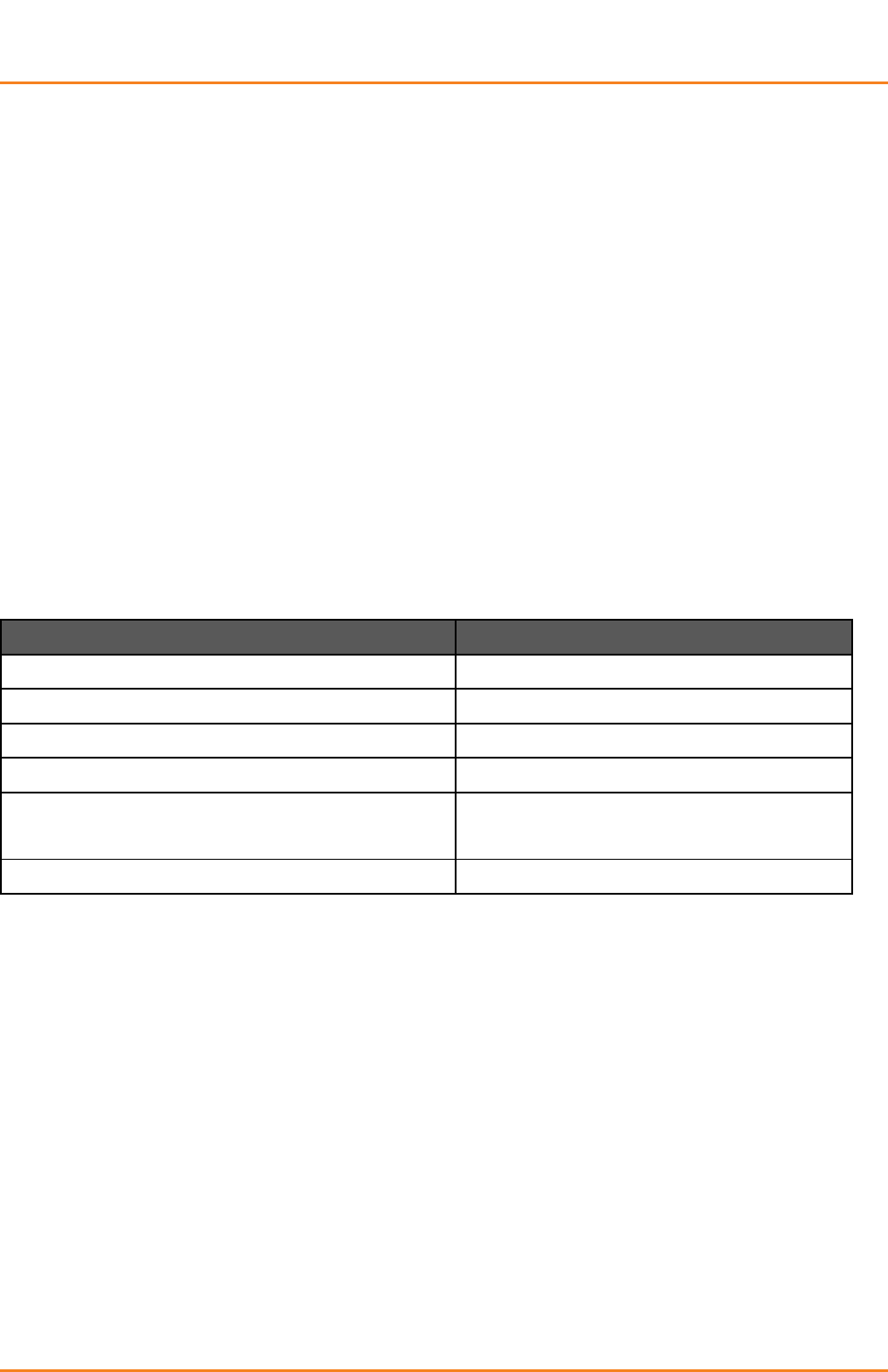
36
Guidance – Boiler Upgrade Scheme: Property owner guidance V3
This guidance applies to applications submitted on or after 8 May 2024.
5.18. Seeking consent is solely for Ofgem to confirm that an installer is applying on behalf of
the property owner and the property owner has consented to this. It does not confirm that a
property owner agrees to the installation of the low carbon heating system. It does not
duplicate or recreate any contractual arrangements that an installer and property owner have
in place.
5.19. Consent will be asked for only once and will be obtained at the voucher application
stage and not at the voucher redemption stage.
5.20. Where the property is owned by an organisation, the property owner is anyone who can
legally represent that organisation eg a director or company secretary. We have a Letter of
Authorisation (LOA) on our website which must be used if the property is owned by an
organisation that is not listed on Companies House. We will require consent from an
individual. Table 4 shows the signatory of the LOA and the authority we will accept.
Table 4 - Signatories of the LOA
Property owner
Signatory
Company (if not listed on Companies House)
Director or Company Secretary
Charity
Trustee
School (if not Ltd company or charity)
Headteacher
Trust
Trustee
Place of worship (if not Ltd company or
charity)
Religious leader of the place of worship
Housing association
Director
5.21. The property owner must give their consent within 14 days of the date we send the
email to them. Failure to provide consent may lead to the application being rejected.
Property owners must provide consent via the validation link in the email we send to
them. We cannot accept consent via another medium unless the individual needs to use our
assisted digital service, as described in paragraph 5.35.
5.22. Property owners will be required to confirm:

37
Guidance – Boiler Upgrade Scheme: Property owner guidance V3
This guidance applies to applications submitted on or after 8 May 2024.
• their full name
72
• key project details, including the installation address, proposed low carbon
heating system and quote details supplied by the installer
• that they own (or co-own) the property at the installation and where there are
multiple owners of a property, that the person confirming consent is acting with
the agreement of the other owners
• that they consent to the installer making a BUS application on their behalf
• that they will become the owner of the low carbon heating system upon
completion of the installation
• that the property is not social housing
• that they have not received other support from public funds or government
schemes, such as the Energy Company Obligation (ECO), for any of the costs of
the purchase or installation of the eligible low carbon heating system in question
• that they have never had any previous funding or support from public funds or
government schemes such as ECO and RHI for previous a low carbon heating
system in the property.
• that they have read and understood the recommendations on their Energy
Performance Certificate
• where the property owner does not occupy the property, has informed the tenant
of the impact of the installation of the eligible system
5.23. We use the information provided in the voucher application to undertake a soft
verification check for assurance purposes. If we are unable to successfully complete these
72
Where the property is owned by an organisation this should be an individual who can legally
represent the organisation eg a director or company secretary.

38
Guidance – Boiler Upgrade Scheme: Property owner guidance V3
This guidance applies to applications submitted on or after 8 May 2024.
checks via our third-party provider, we may need to request additional documents to
complete these checks.
5.24. In the event property owners are required to provide us with copies of ID documents,
they will have 14 days to provide us with these. They must provide a clear, digital copy of
one of the following:
• A valid UK driving licence (photocard or paper)
• The full signature and photo page of a valid passport
• A current UK firearms certificate or shotgun license
• A current national identity card
• A utility bill dated within the last 3 months. This can include a bank letter, a
mortgage statement, or a bank/credit card statement
5.25. The property owner will also be informed of the possibility that they may be contacted
to ask for access to their property for audit purposes. Further information on the audit
process is set out in chapter 6.
5.26. Where there are multiple owners of the same property, we will only need the details
and confirmation of consent from one of the owners. However, that confirmation must state
that the property owner giving consent on behalf of the other(s) has the authority to do so.
5.27. In cases of shared ground loop applications, where there are multiple properties being
connected to a single ground loop, we will require the installer to submit a separate
application for each property that intends to connect to the ground loop. We will require
consent from the owner of each property that intends to connect to the loop.
Power of attorney
5.28. Where property owners have a lasting power of attorney (LPA) in place, the
confirmation of consent for a BUS application being made should be provided by the attorney.
5.29. When applying for a BUS voucher, the installer should always provide the name of the
property owner on the application alongside their residential address and installation address
(if different).
5.30. However, if consent is to be confirmed by the attorney, the consent email field should
be populated with the email address of the attorney. The installer must inform Ofgem that
the consent will be provided by an attorney whereby we will seek further information.

39
Guidance – Boiler Upgrade Scheme: Property owner guidance V3
This guidance applies to applications submitted on or after 8 May 2024.
5.31. For any LPA registered on or after 1 September 2019, we will require the surname of
the property owner (the donor) and the LPA access code. If the LPA is registered before 1
September 2019, we will require a copy of the LPA. For more information on LPA, please see
government portal.
73
What giving consent means
5.32. It’s important to remember that the property owner is only consenting to an installer
making a BUS application on their behalf. This is so that we have assurance that the
application is being made in good faith.
5.33. It does not mean the property owner has committed to working with a particular
installer. That’s something that needs to be handled separately through the contract the
property owner signs with the installer.
Assisted digital
5.34. We realise that some property owners do not use emails or may not be able to access
the online service to provide their consent. If the installer is unable to provide an email
address for the property owner, we will contact them via an alternative channel such as
telephone or post. As this might take longer, we will allow 28 days for the property owner to
provide consent. As with the standard consent process, it is important that the property
owner responds within the required deadline. Failure to do so may lead to the application
being rejected and the application process will have to be started again.
5.35. Ofgem will provide a Welsh translated service where the installer requests this.
Consent in error or fraud
5.36. In situations where more than one installer has submitted a BUS application for one
property, the property owner can only give their consent to one of them. Once consent is
given, we’ll reject any applications from other installers.
5.37. Where consent has been provided in error, please contact us at
[email protected].uk so we can correct the situation.
73
https://www.gov.uk/view-lasting-power-of-attorney

40
Guidance – Boiler Upgrade Scheme: Property owner guidance V3
This guidance applies to applications submitted on or after 8 May 2024.
5.38. Where we identify that consent has been provided fraudulently, we will reject an
application or revoke the voucher and contact the property owner and the installer regarding
the application. We may refer the case to the police.
5.39. We will verify the identity of property owners using the information we have received
from installers as part of the application. This will be done using a third party providing an ID
verification service. This verification will not impact the property owner’s credit rating. Where
we require additional information to verify the property owner’s identity, we will request
information directly from them. For more information on how we process your personal
information, please see our Privacy Policy for Property Owners.
74
5.40. If we require any further information from the property owner after they’ve confirmed
their consent, we will get in touch. Otherwise, the property owner doesn’t need to do
anything else in relation to the BUS application.
5.41. Once the property owner has provided consent and subject to all eligibility criteria being
met, a voucher will be issued to the installer. The property owner will also be informed.
Completing the project
5.42. Once a voucher for an ASHP or biomass boiler is issued,
75
the installer has three
months from the date the application is approved to complete the installation in line with
industry standards and scheme requirements, and to register the installation with MCS and to
redeem the voucher. Installers will have six months to do this for GSHPs.
76
MCS may get in
touch with the property owner regarding the quality of the installation.
5.43. If a voucher expires before work is complete, the installer will have to submit a new
voucher application for the same installation.
74
https://www.ofgem.gov.uk/publications/boiler-upgrade-scheme-privacy-notice-property-owners
75
We will not issue BUS vouchers after 31 December 2027. The latest date a BUS voucher will expire is
therefore 31 March 2028.
76
The BUS regulations, Regulation 15 (2)

41
Guidance – Boiler Upgrade Scheme: Property owner guidance V3
This guidance applies to applications submitted on or after 8 May 2024.
5.44. When the new system has been installed and the installer has completed their checks,
the installer must submit a voucher redemption application to us in order to claim the grant
amount. When a redemption application is successful, we will notify the installer of this
outcome.
Payment
5.45. Once a redemption application has been approved, it will be processed for payment,
along with all other redeemed vouchers, on the next scheduled payment day. We operate a
weekly payment schedule, meaning we will seek to make several payments on the same day
each week. Therefore, the gap between us approving a voucher redemption application and
sending payment for it will be a maximum of five working days for most voucher redemption
applications. Where the scheduled payment day is a public holiday, payments will be made on
the following working day. We may make payments more frequently depending on our
capacity. We understand it may take up to three to five additional working days for banks to
clear funds and for the payment to appear in the installer’s account.

42
Guidance – Boiler Upgrade Scheme: Property owner guidance V3
This guidance applies to applications submitted on or after 8 May 2024.
6. Audit & compliance
Why we undertake audits
6.1. To help ensure that the public money that funds the BUS has been used correctly and
in line with the BUS eligibility criteria, we (and agents authorised on our behalf) run a
comprehensive audit programme on properties, installations and installers that have made a
BUS application or received a BUS grant. The regulations provide a range of powers that allow
us to take action where non-compliance, fraud or abuse is suspected or discovered.
Audit types
6.2. We carry out both site and desk audits. These are both done either on a statistical or a
targeted basis.
6.3. Desk Audits: Desk audits can be by phone or email. In these cases, we may need
additional information from the property owner or the installer as assurance that the
installation is compliant with scheme eligibility. We may request that property owners send
additional information to us via email. Alternatively, additional information may be sent to
Ofgem via post.
6.4. Site Audits: We may request access at any reasonable hour to inspect a property
which relates to a BUS voucher application, a BUS voucher redemption application or has had
a BUS grant paid.
77
77
The BUS regulations, Regulation 18
Section summary
This chapter explains our audit powers under the BUS. It explains why we audit, the types
of audits we carry out, what an audit consists of and what to expect from audits. It also
sets out how property owners can get help from consumer codes if they experience a
problem with their heating system or installer.

43
Guidance – Boiler Upgrade Scheme: Property owner guidance V3
This guidance applies to applications submitted on or after 8 May 2024.
6.5. We will give property owners no less than two days’ notice ahead of a site audit taking
place. Within the notice the following information will be provided:
• date of the audit
• the property owner’s right to refuse the request.
6.6. If property owners refuse the request for an audit, this may contribute towards a
decision to withhold payment, reject the voucher, or voucher redemption application, revoke
a voucher, or seek to recoup any grant already paid out.
6.7. All our site auditors are Disclosure and Barring Service (DBS) checked. It is possible
for a property owner to check that a request from us for access to their property is genuine
by either e-mailing BUS.enqu[email protected] or by telephoning our BUS Enquiry line on
0330 053 2006.
6.8. We are likely to request evidence from property owners when we carry out an audit.
Evidence that may be requested includes but is not limited to:
• valid ID (eg passport or driving license or similar)
• proof of address (eg utility bill or council tax bill)
• proof that you own the property where the heating system is installed (eg
register of title or mortgage statement/letter or any other legal document)
• copies of MCS certificate (provided by the installer)
• copies of EPCs
• EPC site notes
78
78
We ask that installers and property owners ensure that site notes from EPCs are retained going
forward, and we will expect installers and property owners to be able to provide EPC site notes for EPCs

44
Guidance – Boiler Upgrade Scheme: Property owner guidance V3
This guidance applies to applications submitted on or after 8 May 2024.
• purchase receipts/quote for the low carbon technology (provided by the installer)
• total building heat loss calculations (provided by the installer)
• emission certificate if the system is a biomass boiler (provided by the installer)
6.9. If the property is an eligible self-build, we may require additional evidence. This
includes but is not limited to:
• planning permission issued by your local authority
• building completion certificate
• HMRC VAT (Value Added Tax) exemption letter
• self-build mortgage/loan
• official invoices (with VAT number) for building materials/works addressed to the
property owner. Invoice for substantial structural works (eg foundations, timber
frame, large order of bricks, etc)
6.10. MCS undertake their own checks on BUS-funded heating system installations
completed by MCS installers. They will be contacting property owners directly to capture
information to carry out these checks. They may contact property owners via
boilerupgradescheme@mcscertified.com or 0333 103 8198. Property owners should aim to
respond within seven days of receiving their communication. For further help, please contact
MCS.
79
After an audit is conducted
produced since the publication of guidance v1.1 in July 2022. We understand that it may not be possible
to obtain EPC site notes for older EPCs, but we may request them and would expect to receive them if
they are available.
79
https://mcscertified.com/about-us/contact-us/

45
Guidance – Boiler Upgrade Scheme: Property owner guidance V3
This guidance applies to applications submitted on or after 8 May 2024.
6.11. We will write to the installer and the property owner to outline the results of the audit.
Where there are rectifiable issues identified by the audit, the letter will specify the actions
required of the installer and if necessary, of the property owner. The installer or the property
owner will be expected to address these issues and will be asked to report back to us when
the necessary action has been taken. Instructions of how to report back will be contained
within the communication from us. Depending on the nature of the issues identified and the
response received, we may either launch a formal compliance investigation (which may
involve a temporary withholding of a grant payment) or take other compliance action.
6.12. If, during our investigation or an investigation carried out by MCS or consumer codes,
we come to believe that a non-compliance with the BUS regulations has occurred, we have
the authority to take compliance actions against the installer. These could include withholding
payments,
80
revoking vouchers,
81
offsetting payments due, or seeking repayment.
82
6.13. Some examples of non-compliance are:
• the installer has failed or is failing to comply with an obligation
• the installer has been issued a voucher, or has been paid as a result of incorrect
information in a grant application
• the installer is not an MCS-certified installer for the technology that was installed
• the property is not an eligible property
• the heating system is not eligible
• the property owner has not consented to the installation or that consent is
falsified
80
The BUS regulations, Regulation 19 and 20
81
The BUS regulations, Regulation 21
82
The BUS regulations, Regulation 22

46
Guidance – Boiler Upgrade Scheme: Property owner guidance V3
This guidance applies to applications submitted on or after 8 May 2024.
• the property owner has previously received public funding for the low carbon
heating system or for another low carbon heating system at the same address.
6.14. Where we decide to revoke a voucher or withhold or recoup a payment, we will inform
the property owner and the installer of this.
6.15. Where we believe installers and property owners have colluded in fraudulent activity,
we may refer cases to the police.
6.16. Where information provided by the property owner to the installer is false or
inaccurate and the installer has become aware, the installer must notify us of that fact no
more than 14 days after becoming aware. Inaccurate information could lead to us revoking
the voucher or withholding or recouping the grant payment from the installer. We do not have
any role or responsibility relating to the contractual arrangements between installers and
property owners.
Fraud
6.17. Fraud is a criminal offence, and we will take stringent action wherever this is
suspected.
6.18. We take fraud and non-compliance within our schemes seriously. We have a dedicated
Counter Fraud function that undertakes activity to detect, prevent and deter fraudulent
activity on the environmental and social programmes that we deliver.
6.19. Irrespective of any action we may take in relation to non-compliance, there may be
instances where we uncover evidence of possible criminal conduct such as fraud. In such
cases, based on the nature of the information we hold, we may refer the case to law
enforcement agencies for investigation.
6.20. Report any concerns about suspected fraud to us by:
• emailing us at counterfr[email protected] or
• calling us on 0207 901 7373 where you will be invited to leave a voice message.
If we require further information in order to consider the concern, we will call you
back.

47
Guidance – Boiler Upgrade Scheme: Property owner guidance V3
This guidance applies to applications submitted on or after 8 May 2024.
6.21. Our website page on counter fraud for environmental and social programmes
83
provides further information on what we do if we suspect fraud and what information must be
provided when reporting suspected fraud.
83
https://www.ofgem.gov.uk/environmental-and-social-schemes/counter-fraud-environmental-and-
social-programmes

48
Guidance – Boiler Upgrade Scheme: Property owner guidance V3
This guidance applies to applications submitted on or after 8 May 2024.
7. Consumer rights and protections
What to do when things go wrong
7.1. If a property owner experiences problems or has concerns with their new heating
system, for example underperforming equipment, repairs, or safety issues, they should speak
to their installer first.
7.2. All installers must be a member of MCS. If a property owner experiences problems
with their installer, they should visit the MCS website and read ‘What to do when things go
wrong’ for further advice and guidance.
84
7.3. Property owner rights are protected by the consumer codes, HIES
85
and RECC,
86
set
up to promote the renewable energy sector and protect customers. MCS can advise on when
and how to engage with them.
7.4. Members of HIES and RECC are from the renewable industry, and they are required to
adhere to the code, which is certified by the Chartered Trading Standards Institute. A
condition of MCS certification is membership to HIES or RECC. They can help deal with
complaints about breaches of the consumer code, such as:
• where misleading information has been provided about the scheme or the
renewable technology installed
84
https://mcscertified.com/complaints-compliance/
85
https://www.hiesscheme.org.uk/
86
https://www.recc.org.uk/
Section summary
This chapter sets out who property owners should contact if they encounter issues related
to consumer rights and protections.

49
Guidance – Boiler Upgrade Scheme: Property owner guidance V3
This guidance applies to applications submitted on or after 8 May 2024.
• where the information in the contract and the actual service provided do not
match up
• where the installer has inflated the costs provided in the quote
7.5. MCS and the consumer code organisations work closely together to address complaints
for consumers. If a property owner does have a complaint or a concern, they should consider
highlighting it to each organisation to make sure it can be fully investigated. These consumer
codes exist to protect consumers from any harm they may face due to any MCS installer’s
misconduct.

50
Guidance – Boiler Upgrade Scheme: Property owner guidance V3
This guidance applies to applications submitted on or after 8 May 2024.
8. Reporting
8.1. As part of our administrative responsibilities, we are required to publish reports on a
quarterly and annual basis on our website.
87
Additionally, we will seek to publish monthly
updates on the operation of the BUS. This aids transparency on how the scheme is
progressing and how much budget remains available for installers to apply for on a property
owners’ behalf. These reports will consist of key information relating to the scheme, including
the number of vouchers issued, number of vouchers redeemed, total value of grants paid and
remaining budget.
Reporting frequency
8.2. We will seek to publish monthly reports for each calendar month in the first week of
the following month.
88
8.3. Quarterly reports will be published by:
• Q1: 31 August
• Q2: 30 November
• Q3: 28 February
• Q4: 31 May
87
The BUS regulations, Regulation 30
88
https://www.ofgem.gov.uk/environmental-and-social-schemes/boiler-upgrade-scheme-bus/guidance-
and-resources
Section summary
In this chapter we set out the data we include in our regular reports, and the frequency of
our reporting.

51
Guidance – Boiler Upgrade Scheme: Property owner guidance V3
This guidance applies to applications submitted on or after 8 May 2024.
8.4. Annual reports will be published on the 31 July each year covering the preceding 12-
month period ending with 31 March of that year.
8.5 All information will be published in an anonymised form.

52
Guidance – Boiler Upgrade Scheme: Property owner guidance V3
This guidance applies to applications submitted on or after 8 May 2024.
9. Queries, feedback, and complaints
Queries
9.1. For general queries regarding the BUS please email us at: [email protected]
Right of review
9.2. If the property owner thinks we have made an error in a decision relating to the BUS
application that has been submitted on their behalf, they should talk to their installer as they
are able to ask for a review of any decision we have made related to the scheme. Installers
must submit a request for a review within 28 days from when we sent them the decision.
Details of how they can do this are included within our separate guidance document for
installers.
89
Complaints
Complaints about policy and policy decisions
9.3. Where the complaint is about the scheme’s underlying policy, including the eligibility
criteria, please contact DESNZ : boilerupgradescheme@energysecurity.gov.uk
Complaints about scheme administration
9.4. If a property owner has a complaint or recommendation about our administration of
the scheme or concerns on how an application has been handled, they can email
[email protected].uk. Our Complaining About Ofgem webpage gives more information on
our complaints process.
90
89
https://www.ofgem.gov.uk/publications/boiler-upgrade-scheme-guidance-installers
90
https://www.ofgem.gov.uk/about-us/contact-us/complaining-about-ofgem
Section summary
This section outlines how property owners can contact us about queries and raise
complaints about the policy and the scheme administration.

53
Guidance – Boiler Upgrade Scheme: Property owner guidance V3
This guidance applies to applications submitted on or after 8 May 2024.
Complaints about installers
9.5. If you have a complaint about an installer, you should raise it with them in the first
instance. If you have already done so, but feel that it has not been resolved satisfactorily,
you may be able to take the complaint to MCS,
91
HIES,
92
or RECC.
93
91
https://mcscertified.com/
92
https://www.hiesscheme.org.uk/
93
https://www.recc.org.uk/
